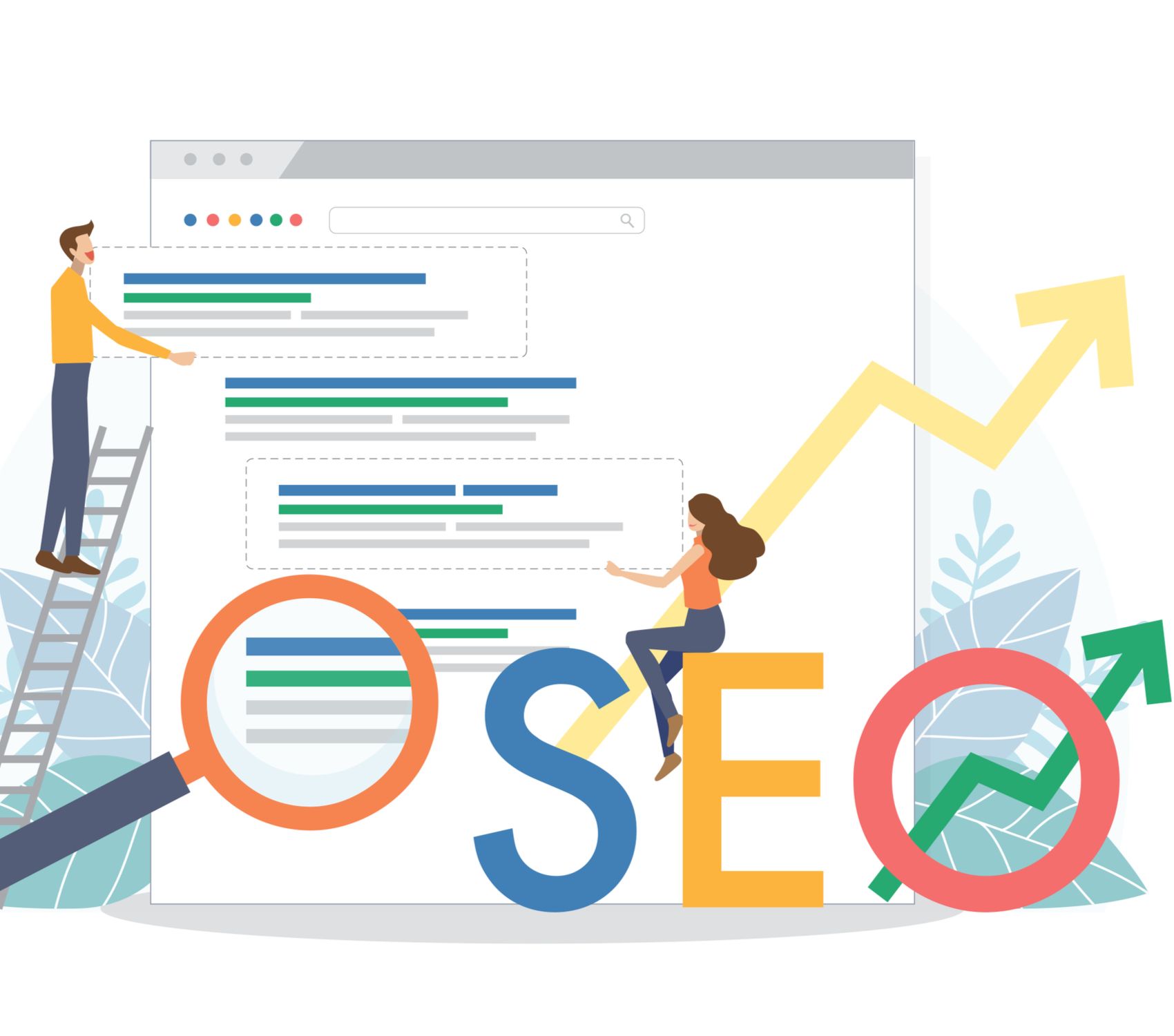
You have likely heard discussions about how outbound links can affect your search engine optimization. Is it really true, though? Do outbound links help SEO, or is it another myth circulating on the internet?
An outbound link, also called an external link, directs users from your website to another. Think of them as digital referrals, guiding your visitors to other helpful resources on the web. Their precise effect on a site’s SEO performance, however, is often debated.
The short answer is yes; adding outbound links can absolutely help SEO when you use them as part of a thoughtful content plan. It is not as simple as filling your content with links and waiting for great results. Let’s explore how an outgoing link works and why it matters for your engine optimization efforts.
The SEO Benefits of Outbound Links
An outbound link serves multiple functions that can indirectly improve your SEO. Strategic use of external links offers significant advantages for your website. Here is how they can provide assistance.
1. Improved User Experience
High-quality outbound links improve your content by offering more value to your readers. When you connect to reputable external sites, you give your audience access to deeper information. This simple action greatly improves their user experience on your site.
Google places a high value on user experience. Websites that keep visitors engaged and satisfied generally achieve higher rankings in search results. By using an outbound link to foster a better user experience, you are sending positive signals to search engines.
2. Increased Credibility and Trust
Linking to authoritative sources demonstrates that you have properly researched your topic. It adds significant credibility to your content and helps establish you as a trustworthy source of information. This practice can lead to more inbound links and social media shares, which are powerful ranking factors.
When you support your statements by linking to a credible source, like a respected study or an expert’s analysis, you build trust with your audience. This trust often improves engagement, a metric that search engines use to evaluate your content’s quality. Placing outbound links to authoritative sources reinforces your site’s expertise.
3. Provides Important Context
Outbound links help search engines understand content on your page with greater clarity. When you link to relevant, high-quality pages, you give Google and other search engines more information about your subject matter. This can help improve your content’s relevance for specific and relevant search queries.
For example, if you are writing about digital marketing and link to a well-known analytics platform, you are reinforcing the relevance of your content to that topic. This helps search engines understand and rank your page more accurately for relevant search. It’s a fundamental part of a modern SEO strategy.
Best Practices for Using Outbound Links
While an outbound link can be beneficial, using them correctly is important. To make the most of your external links, you need a solid plan. Here are some guidelines for adding outbound links effectively.
1. Quality Over Quantity
Do not add links just to have them on the page. Concentrate on linking to high-quality, authoritative sources that genuinely add value for your readers. A few carefully chosen links are far more effective than a page full of low-quality ones.
You should avoid linking to spammy or untrustworthy sites, as this can harm your credibility and potentially your rankings. A regular links check is a good habit to ensure your outbound links point to reputable domains. Performing an outbound links check can prevent you from being associated with sites that are considered spammy.
2. Use Descriptive Anchor Text
The clickable text of your link, the anchor text, should be descriptive and contain relevant terms. Instead of using generic phrases such as “click here,” use text that accurately describes the content of the linked page. This practice helps both users and search engines understand the purpose of the link.
Using descriptive anchor text is also an accessibility win, as it helps people using screen readers understand the context of your links. Good anchor text provides a clear idea of what to expect upon clicking. This small detail can significantly improve the user journey.
3. Keep All Links Relevant
Ensure that your outbound links are directly relevant to your content. Random external links that do not fit the context can be confusing for both your audience and the search engines trying to understand your page. Each external link should have a clear purpose and add to your page’s value.
If you are writing about healthy recipes, for example, linking to a page about classic car parts would not make sense. You should only add outbound link placements to resources that complement and expand upon your own content. Maintaining relevance is a core part of effective link building.
4. Know When to Use Nofollow, Sponsored, and UGC Attributes
There are times you may want to add links to a site without passing along your site’s authority or “link juice”. In these situations, you can use special link attributes. This tells search engines how to treat the link.
The main attributes to know are:
- rel=”nofollow”: This is a general attribute for when you want to link to a page but not endorse it. A nofollow link instructs search engines not to crawl the link or pass any ranking credit. It is wise to add nofollow for links to less trustworthy sources you still need to reference.
- rel=”sponsored”: This attribute should be used for any links that are part of an advertisement, sponsorship, or other paid arrangement. According to Google’s guidelines, paid links must be marked this way to avoid violating their policies against link spam.
- rel=”ugc”: This stands for “user-generated content.” This attribute is perfect for links that appear in comments sections or forum posts where you cannot vouch for every link added by a visitor.
Using these attributes correctly helps you maintain transparency without risking your SEO efforts. According to Google’s John Mueller, using these attributes appropriately helps search engines understand the web better. Proper use of links nofollow and sponsored tags is a sign of a well-managed website.
The Impact of Outbound Links on SEO: Expert Views
Many respected figures in digital marketing believe that outbound links can positively affect your search rankings. For literally decades, academic papers have used citations to build authority, and the same principle applies online. An outbound link acts as a citation, showing you have researched your topic.
Experts often point out that outbound links demonstrate your content is part of a larger conversation. When you direct users to helpful resources, you position your website as a valuable hub of information. Over time, this can lead to more inbound links, which are a direct and powerful factor for your site’s SEO.
However, it is vital to remember that adding links is just one component of a larger puzzle. Outgoing links work best when combined with a comprehensive SEO strategy. This includes creating excellent content, optimizing for keywords, and building a solid internal linking structure.
Potential Risks to Avoid with Outbound Links
While an outbound link can be beneficial, they also carry some risks if you are not careful. A poor link building approach can sometimes do more harm than good. Being aware of potential pitfalls is the first step in avoiding them.
| Risk | Description | Solution |
|---|---|---|
| Sending Traffic Away | Every external link is a potential exit point from your site, which can increase your bounce rate. | Ensure your content is highly engaging. Set external links to open in a new tab to keep users on your site. |
| Linking to Low-Quality Sites | Connecting to spammy or low-authority sites can damage your site’s reputation in the eyes of Google. | Vet every site you link to. Perform a regular outbound links check for quality and relevance. |
| Link Rot & Broken Links | Pages you link to can be moved or deleted, creating broken outbound links on your site, which is bad for UX. | Use a broken link checker tool periodically. Update or remove broken links as part of your content management routine. |
| Over-Optimization | Stuffing content with too many external links can appear unnatural and spammy to users and search engines. | Add outbound link placements naturally where they add value. Focus on the reader’s needs, not just hitting a link quota. |
To mitigate the risk of losing website traffic, make sure your content is compelling enough to hold the reader’s attention. A common practice is to have an outbound link open in a new browser tab. This allows the user to check the resource without leaving your page, although you should consider user preference.
If you are not certain about a site’s quality but still wish to reference it, use a nofollow link. This prevents your site from passing its link authority to a potentially questionable source. Diligence in this area protects your site’s SEO integrity.
A good rule to follow is to include just a few helpful outbound links in your content. This keeps your page looking natural and prevents it from being seen as a low-value link farm. Your primary focus should always be providing a great experience for your visitors.
How to Measure the Impact of Your Outbound Links
Directly measuring the SEO impact of adding outbound links can be challenging. However, there are several metrics you can track to gauge how they are affecting your site. These indicators can provide valuable feedback on your SEO strategy.
1. Engagement Metrics
Pay close attention to metrics like time on page, bounce rate, and pages per session. If these metrics show improvement after you add outbound links that are relevant, it could mean users find your content more useful. This signals to Google that your page is a high-quality result.
You can monitor these metrics using free tools like Google Analytics. Look for positive trends over several weeks or months to see if there is a connection between your outbound link strategy and improved engagement. This data helps you refine your approach to content and link building.
2. Backlink Profile Growth
You can monitor your backlink profile with tools from companies like Ahrefs or Moz. When you consistently link out to authoritative sources, you may see an increase in inbound links to your own site. Other webmasters may see your content as a valuable resource hub and link back to it.
This is a slow process that is part of a longer works strategy for link building. Do not expect immediate results, but track your progress over several months. Growth in your inbound links is a powerful signal that your overall site’s SEO performance is improving.
3. Keyword Rankings
While many factors affect your SEO ranking, you can track your positions for key search queries over time. If you notice improvements after implementing a quality outbound linking strategy, it could be a contributing factor. Improvements in rankings are a direct indicator of your SEO success.
Use tools like Google Search Console to monitor your rankings for the search queries you are targeting. Focus on long-term trends rather than daily changes. This perspective will give you a more accurate picture of how your SEO strategy is performing and impacting website traffic.
Conclusion
So, do outbound links help SEO? The definitive answer is yes, but only when used correctly and as part of a larger plan. Quality outbound links can enhance your content, improve the user experience, and signal to search engines that your website is a helpful and authoritative resource.
Hire our SEO company if you are looking for help with outbound links and the best optimization methods for your digital marketing journey.
They are not a quick fix for SEO success, but they are a crucial part of a complete digital marketing plan. Remember to prioritize quality over quantity, maintain relevance in your links, and always focus on the user experience. By following these principles, you can use the power of the outbound link to support your SEO goals and create more valuable content for your audience.
An outbound link is just one instrument in your SEO toolkit. Combine this practice with other fundamentals like creating high-quality content, optimizing for keywords, and building a strong site structure. With a well-rounded approach to search engine optimization, you will be on the right path to achieving better rankings and more organic website traffic.












